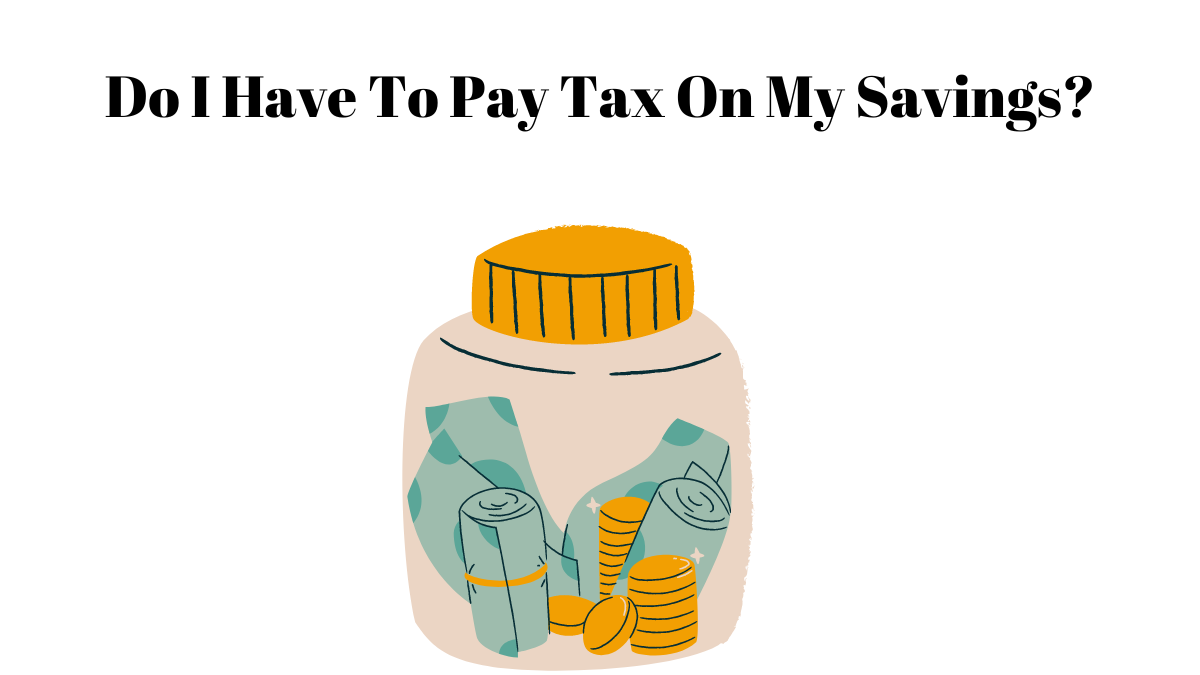Are you curious to know “Do I have to pay tax on my savings”? If so, you are on the right spot here. In the UK, several allowances and thresholds determine whether you need to pay tax on the interest earned from your savings. This article will explain the process and explain the importance of savings taxation in a way that is accessible to everyone.
Contents
- Personal Allowance
- Starting Rate for Savings
- Personal Savings Allowance
- Interest from Different Sources
- Joint Accounts
- Going Over Your Allowance
- Conclusion
- Some Questions
- Do i have to pay tax on my savings?
- What is a Personal Allowance?
- What is the Starting Rate for Savings?
- What is the Personal Savings Allowance?
- Does interest from all savings count towards the allowance?
Personal Allowance
Firstly, it is important to know about the Personal Allowance. This is income amount you are allowed to earn every year without having to pay any tax on it. For the majority of individuals, this also includes the interest earned on savings.
The exact amount of the Personal Allowance can change with each tax year, so it is important to check the current threshold.
Starting Rate for Savings
If your other income is low enough, you might also benefit from the Starting Rate for Savings. This is an additional amount of savings interest you can earn tax-free. If your other income is below a certain threshold, you could qualify for up to £5,000 of interest without paying tax. However, this rate decreases as your other income increases, and it is not available if your other income exceeds £17,570
Personal Savings Allowance
Another key term is the Personal Savings Allowance (PSA). This allowance lets you earn a certain amount of interest on your savings without paying taxes. The amount of PSA you are entitled to depends on your Income Tax band:
- Basic rate taxpayers can earn up to £1,000 of interest tax-free.
- Higher-rate taxpayers have a £500 allowance.
- Additional rate taxpayers do not receive a PSA, meaning they pay tax on all savings interest
Interest from Different Sources
Your PSA covers interest from various sources, including bank and building society accounts, unit trusts, and government or company bonds.
However, interest from tax-free accounts like Individual Savings Accounts (ISAs) and certain National Savings and Investments accounts do not count towards your PSA.
Joint Accounts
For those holding joint accounts, the interest is typically split equally between account holders for tax purposes. If you believe the interest should be divided differently, you will need to contact the savings helpline.
Going Over Your Allowance
If the interest you earn exceeds your allowances, you will need to pay tax on the excess at your usual rate of Income Tax. For employed individuals or pension recipients, HMRC will adjust your tax code to collect the tax automatically.
Conclusion
In summary, We understood the question: Do i have to pay tax on my savings. Whether you need to pay tax on your savings interest in the UK depends on how much interest you earn and your other income.
By understanding your Personal Allowance, Starting Rate for Savings, and Personal Savings Allowance, you can better manage your finances and potentially reduce your tax liability.
Some Questions
Do i have to pay tax on my savings?
Not always. You have allowances that let you earn some interest tax-free. These include your Personal Allowance, Starting Rate for Savings, and Personal Savings Allowance.
What is a Personal Allowance?
It is the amount you can earn each year without paying tax, which also covers interest on savings if you have not used it up with other income.
What is the Starting Rate for Savings?
If your other income is low, you could get up to £5,000 of interest without tax. However, this decreases if your other income increases.
What is the Personal Savings Allowance?
Depending on your tax band, you could get up to £1,000 (basic rate) or £500 (higher rate) of interest without tax. There is no allowance for additional rate taxpayers.
Does interest from all savings count towards the allowance?
No, interest from tax-free accounts like ISAs does not count. Your allowance covers interest from bank accounts, unit trusts, and some bonds.

I am a dedicated lifestyle and fashion enthusiast, always looking for the latest trends and timeless styles. With a flair for creativity and a passion for self-expression, I provide fresh insights and tips on elevating everyday living and personal style.
















